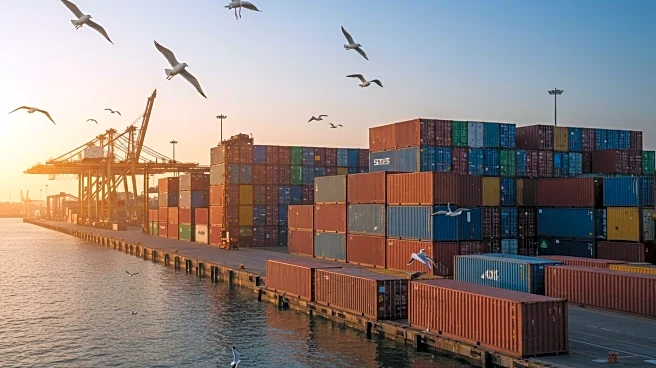What's Happening?
Turkish port authorities have introduced informal requirements for shipping agents to provide declarations that vessels are not linked to Israel and are not carrying military or hazardous cargo bound for the country. This move follows Turkey's severance of trade with Israel, valued at $7 billion annually, due to the ongoing conflict in Gaza. The new restrictions apply to all Turkish ports, with vessels arriving from or departing to Israeli ports being prohibited from docking. Turkish-flagged ships are also barred from calling at Israeli ports. The transport ministry has not issued an official statement on the matter.
Why It's Important?
These new restrictions could further complicate maritime trade in the Eastern Mediterranean, affecting shipping routes and logistics. The move reflects Turkey's strong political stance against Israel, which could have broader implications for regional trade and diplomatic relations. The restrictions may lead to increased shipping costs and delays, impacting businesses and economies reliant on these trade routes. Additionally, the situation highlights the geopolitical tensions in the region, with potential repercussions for international shipping and trade policies.
What's Next?
The international shipping community will likely monitor the situation closely, assessing the impact on trade routes and seeking alternative solutions to mitigate disruptions. Diplomatic efforts may be initiated to address the tensions between Turkey and Israel, potentially involving other regional and global stakeholders. The development could also prompt discussions on international maritime law and the rights of passage in contested waters.










